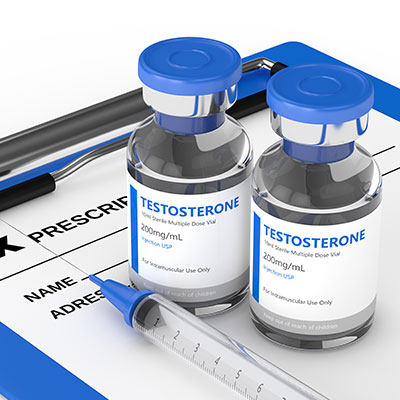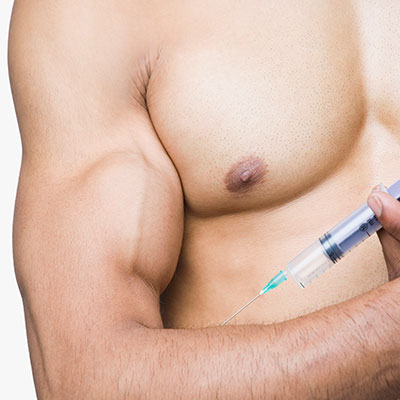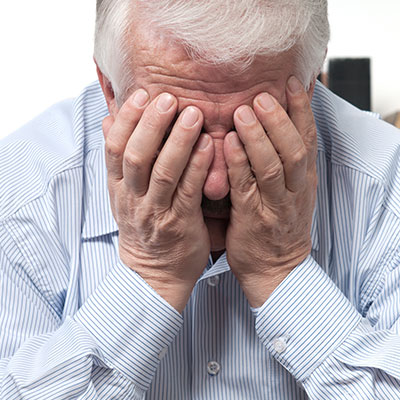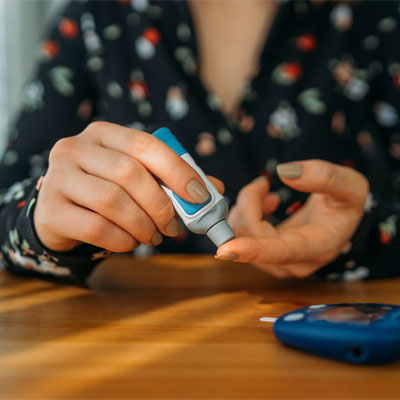Why Testosterone Therapy Is Not Working
Contents
- What Happens If Testosterone Doesn’t Work?
- How Long Does It Take for Testosterone Therapy to Work?
- When Do Testosterone Levels Peak After Injection?
- How Do You Know If Testosterone Therapy Is Working?
- Ways To Improve Testosterone Therapy Results
- What Do the Studies Say About Why Your Testosterone Therapy Is Not Working?
- Conclusion

If you believe that your testosterone replacement therapy is not working, the main thing you need to be aware of is that testosterone therapy takes time.
Testosterone therapy is given over the course of six months at least. While some men see immediate changes in their strength and vitality in the first few weeks of taking testosterone injections, for others, it can take longer, sometimes a month or more, to see significant results.
Therefore, if you believe that your testosterone injections are not working, you probably have not given it enough time for you to see the kinds of benefits you are looking for.
However, if you feel your testosterone therapy is not working, the best thing for you to do is to contact your physician. Only he or she can tell if your testosterone therapy is working, and if it is not, figure out why and adjust your program accordingly.
What Happens If Testosterone Doesn’t Work?
If you have been diagnosed with low testosterone, total failure of testosterone therapy to work is an exceedingly rare occurrence. In fact, if you have been diagnosed with low-T and testosterone therapy is not relieving your symptoms, it really can only mean one of two things – either that your dosage of testosterone is not right or that the majority of your symptoms are being caused by some other disease or condition that is not related to low testosterone.
Since men with low testosterone often are obese or have diabetes or any number of other poor health conditions, an excessive amount of systemic disease is usually the main reason for the complete failure of testosterone therapy.
For the most part, if, after a few weeks, your testosterone therapy does not seem to be working, a simple adjustment of your dosage will correct the problem.
How Long Does It Take for Testosterone Therapy to Work?
Testosterone injections are usually given every 7 to 22 days. Most men do slowly start to feel some of the positive effects of testosterone injections within the first 2 or 3 days after your first injection.
However, testosterone therapy does take time to work, so be patient; you most likely will see results in the first month or so. Therefore, if you do not see results within the first days or week, do not immediately jump to the conclusion that your testosterone therapy is not working.
When Do Testosterone Levels Peak After Injection?

Many people mistakenly believe that the reason that testosterone injections take some time to work is that it takes time to build your testosterone levels back up into the normal range. That is not correct. In fact, your testosterone levels could be “back to normal” after a single injection. The reason it takes time for you to begin to experience the benefits of testosterone replacement therapy is because it takes time for your body to adjust and react accordingly to the newly increased presence of testosterone in your blood.
How Do You Know If Testosterone Therapy Is Working?
You will know that your testosterone therapy is working when you begin to see results. The first benefit that most men see is an improvement in sex drive and an improved ability to achieve and maintain an erection. These improvements in sexual health usually happen within the first four to six weeks of testosterone therapy.
After that, over the course of your six months of testosterone therapy, you should continue to see other improvements, including:
- Increased energy
- Improved muscle tone
- Weight loss, particularly belly fat
- Increased exercise capacity
- Improved moods
- Better sleep
- Improved memory and cognition
Ways To Improve Testosterone Therapy Results
Generally speaking, testosterone replacement works for most men presenting with the symptoms of low testosterone. Every patient is different, and often dosages and delivery methods need to be adjusted for optimal results.
However, the are some things that any patient undergoing testosterone therapy can do to naturally boost their testosterone levels and help improve their results. These include:
- Smoking cessation
- Reduction of alcohol consumption
- Getting enough sleep
- Getting regular exercise – particularly strength training, such as weightlifting
- Optimizing your diet – maximize protein, whole grains, reduce or eliminate processed foods
- Reducing stress
- Nutritional supplements, particularly vitamins B, C, A, and D, and zinc
What Do the Studies Say About Why Your Testosterone Therapy Is Not Working?
There have been countless studies that indicate the effectiveness of testosterone therapy when prescribed for men with low testosterone. Most of the studies indicate that complete failure of testosterone therapy to work is a very rare occurrence.
Of the few studies that have looked into why a patient may fail to respond to testosterone therapy, they mostly conclude that the reason is either an original missed diagnosis of low testosterone or that the symptoms seemingly related to low-T are actually being caused by another disease or condition that does not respond to testosterone replacement.
For example, a recent 2020 study concluded that “The symptoms of hypogonadism are non-specific and restoring testosterone (T) to physiologic levels may not lead to clinical improvement in men with a high burden of systemic illness. Therefore, patients with a greater burden of systemic disease were less likely to have symptomatic improvement with testosterone replacement therapy.”
Conclusion
Testosterone therapy is a safe and effective way to treat low testosterone in men. In the rare occurrence when testosterone therapy does not seem to be working, it can usually be fixed by adjusting your dosage or type of testosterone therapy.
Now that you understand more about how testosterone therapy works, why don’t you take a minute to contact us and see if testosterone replacement may be right for you.
FAQ
1. How Does Testosterone Therapy Work?
Testosterone therapy works by bringing your level of testosterone in the blood back into the more normal range. Increasing testosterone through testosterone therapy can result in more energy, increased muscle mass, decreased body fat, improved cognition, and improved sexual performance.
2, How Do You Know If YourYour Testosterone Therapy Is Working?
Studies show that men who receive testosterone replacement start to notice their sex drive rising after just three weeks. This is often the first sign that testosterone therapy is starting to work. Stick with it, and you should soon see improvements in many other aspects of your life.
3. What Should I Do If I Think My Testosterone Therapy Is Not Working?
First of all, if you think your testosterone replacement therapy is not working, be patient. The results of testosterone therapy take time to develop. However, if it has been more than four weeks, and it seems like your testosterone therapy is still not working, contact your doctor. Most of the time, all that is needed is a simple adjustment in your dose of testosterone.
4. Does Testosterone Therapy Work the Same for All Men?
Any man suffering from age-related testosterone loss can benefit from testosterone therapy. But, like any drug or medical procedure, results will vary from patient to patient. Your testosterone therapy will be customized to your individual needs and symptoms to optimize your personal results.
5. Who Is the Best Candidate for Testosterone Therapy?
Testosterone therapy is the safest and most effective way to treat men suffering from low testosterone, a condition also known as hypogonadism. Once a man is over 20, his testosterone level steadily drops. This can lead to age-related testosterone deficiency. Men who are between the ages of 35 and 65 and do not feel as young, strong, and vital as they once were or would like to be – are the ideal candidates for testosterone replacement therapy.
- “Institute of Medicine (US) Committee on Assessing the Need for Clinical Trials of Testosterone Replacement Therapy; Liverman CT, Blazer DG, editors.
Washington (DC): National Academies Press (US); 2004.” - Farid Saad, PhD., Antonio Aversa MD., PhD., Andrea M Isidori, MD., PhD., Livia Zafalon, Michael Zitzmann, MD., PhD., FRSM., FECSM., Louis Gooren, PhD., MD.
- Vineet Tyagi, MD., Michael Scordo, MD., Richard S. Yoon, MD., Frank A. Liporace, MD., Loren Wissner Greene, MD., MA.
- Peter J Snyder, MD., Shalender Bhasin, MD., Glenn R Cunningham, MD., Alvin M Matsumoto, MD., Alisa J Stephens-Shields, PhD., Jane A Cauley, PhD., Thomas M Gill, MD., Elizabeth Barrett-Connor, MD., FACP., FAHA., Ronald S Swerdloff, MD., Christina Wang, Kristine E Ensrud, MD., MPH., Cora E Lewis, MD., MSPH., FACP., FAHA., John T Farrar, MD., PhD., David Cella, PhD., Raymond C Rosen, PhD., Marco Pahor, MD., Jill P Crandall, MD., Mark E Molitch, MD., Susan M Resnick, PhD., Matthew Budoff, MD., Emile R Mohler, III, MD., Nanette K Wenger, MD., MACC., MACP., FAHA., Harvey Jay Cohen, MD., Stanley Schrier, MD., Tony M Keaveny, PhD., David Kopperdahl, David Lee, Denise Cifelli, BS., MS., Susan S Ellenberg, PhD.
Additional Studies of Testosterone Therapy
Onset of effects of testosterone treatment and time span until maximum effects are achieved
Revisiting the role of Testosterone: Are we missing something?





